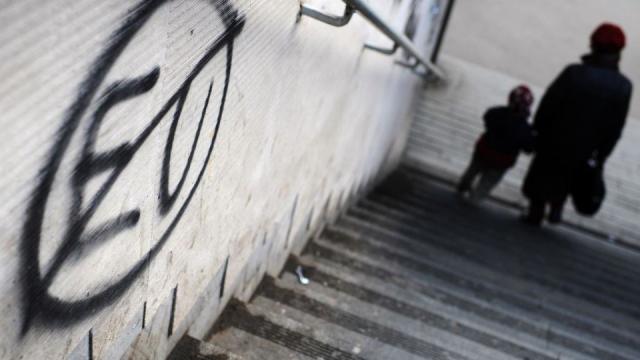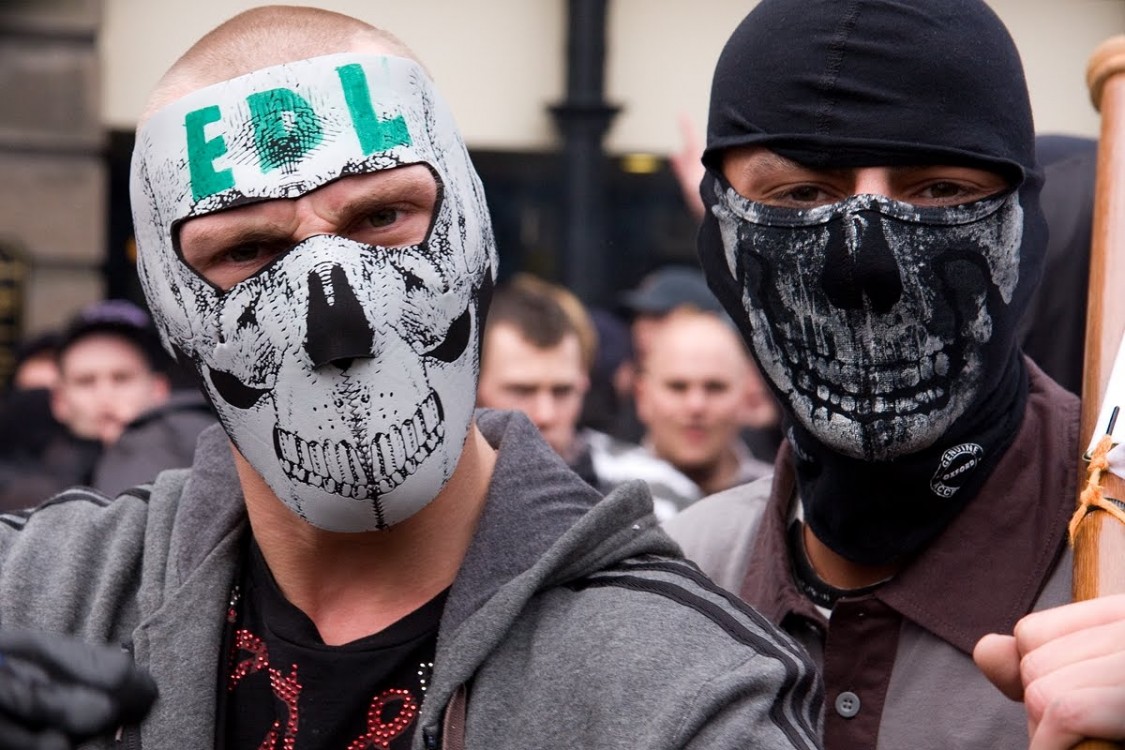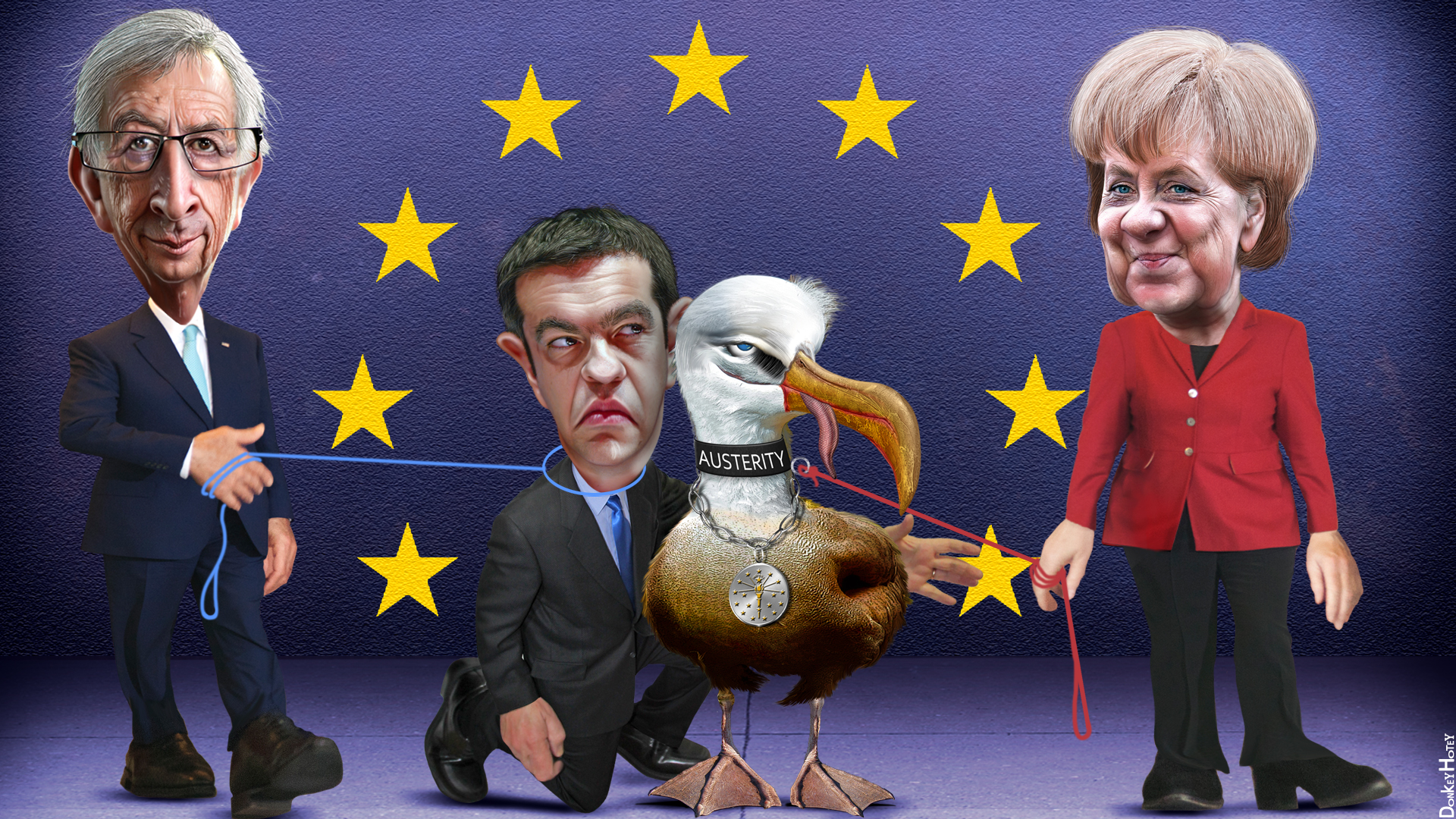
On the heels of Donald Trump's election and his fast efforts to implement policies heralding a new age of United States isolationism, Europe's most prominent far-right parties experienced a surge in popularity. Many fear it won't be long before the EU's right is once again given the reins of power: already France's National Front appears to be leading in the polls for the April 23 election; Geert Wilders, Holland's anti-Islamist party leader, is enjoying the backing of an alarming majority of voters for the March 15 election in the Netherlands; and in the UK, Brexit is quickly moving out of the realm of speculation and into a grim political reality.
By all accounts, it seems Europe is headed back to the bad old days of Euroskepticism and guarded isolationism. Yet some core areas of resistance remain and could be poised to pull Europe back from the brink.
The House of Lords Rebels
U.K. Prime Minister Theresa May has set the final "cut-off" date for European immigrants to the U.K .at March 15, despite the urgings of the E.U. to delay until at least 2019. According to a recent statement made by a member of the U.K. government: "We have had some suggestion that the European Commission might attempt to force us to protect everyone who arrives up to the moment of departure... we could end up with half of Romania and Bulgaria coming here if we wait that long."
The rushed implementation of this policy will cause significant blowback, not least to the country's software engineering, social care and hospitality industries. The plan is to provide five-year working visas for any migrant workers in the country who do not hold "key positions" in the country's economy. However, all migrant workers at the same time will be exempt from any benefits provided to UK citizens.
In response, the House of Lords has openly rebelled against the notion of ending free movement within the European Union. They are backed by representatives in the Tory, Labour and Liberal Democrat parties who recognize that the precedent will cause a chain reaction, putting an end to freedom of movement within the EU that may leave up to 1.2 million expatriated U.K. nationals in Europe without any apparent lifeline.
The pushback was so strong within higher levels of government that only a few days later, officials backtracked by announcing that the measures would be nowhere near as severe as planned, and that renegotiations over the specifics of migrant movement are scheduled for this summer.
Germany's "Alternative" Slumps
Since the inflammatory statement in January by Björn Höcke – then-spokesman for the anti-immigrant and anti-E.U. Alternative für Deutschland (AfD) party, who decried Berlin's Holocaust memorial as [a "monument of shame"] (http://www.politico.eu/article/german-far-right-to-debate-afd-leaders-fu...) – the German people seem to have sobered up from the siren call of the far-right. In recent polls, support for the AfD dropped from 12.5 to 8.5 percent, with over 100,000 euros in donations withdrawn from the party's coffers in the fallout.
While the blowback put a dent in the party's race for the top spot in upcoming elections – and put the Social Democrats (SPD) further ahead in the running – the AfD is now rushing to reinvent its image and regain support for its xenophobic, Euroskeptic platform. For now, it seems, the party's policy proposal to deport all rejected asylum seekers from the country does not speak for the majority of the German people, who are already seeking alternatives in the coming September elections.
The French "Experiment"
With the second round of elections coming up on March 7, France's National Front has enjoyed what feels like a meteoric rise – citing its living, breathing "experiment" of Beziers as proof of the party's success. According to glowing references by Marie Le Pen, the policies applied by Beziers Mayor Robert Menard in one of the country's most impoverished towns illustrates the soundness of National Front policies. According to Menard, strict Euroskepticism and a firm hand toward Syrian and other migrant populations will pave the way for France to leave its current economic predicament.
While the policies seem to be well received by France's working class and voters in poorer regions, the majority of voters (53 percent according to the latest poll) are still reluctant to push such a xenophobic line – especially when faced with anti-German, militaristic rhetoric that promises spending to the tune of over 60 billion euros for French armed forces.
Currently, the majority of French voters seem torn over their alternative: Republican leader Francois Fillon, who has come under fire for invoking Thatcherian cutbacks to labour laws and social spending, or the perhaps the unrealistic optimism of the Socialist Party, which has made glowing promises about social spending and cannabis legalization without a viable financial policy to back them up.
A Reaction Gone too Far?
The meteoric rise of the Dutch PVV in the Netherlands, with its promise to rescind Mosque licenses and "de-Islamise" the country, appears to be [fueled more by a reactionary force]recent developments than a profound political shift. Following Geert Wilders' controversial statements during a recent interview, Mark Ruute, leader of the Liberal VVD party, affirmed that there was "zero percent" chance that they would ever reach a compromise with the PVV to form a coalition – a sentiment shared by the 28 other parties in the Netherlands.
By all counts the country's far-right is already soundly politically isolated, and even its voters do not seem entirely convinced by its message. According to Gerrit Van Hes, one of PVV's supporters, “It’s a protest vote... having Wilders as prime minister would not be good for our country.”
Wilders was chosen as a warning shot to the Hague and the E.U.'s governing body in Brussels, whose policies Dutch people say have failed them, leaving the working class out to dry in favor of cheaper migrant workers. However, with election day approaching in just over a week, the political landscape seems to be shifting quickly, and radically.
Making a Stand?
Are Europe's voters and political parties willing, and able, to make a stand against the rising trend of rightwing parties and xenophobic policy making? Polls and recent developments show that isolationist rhetoric does not represent the majority of the people. Regardless of outcome, 2017 could be the year when the people of Europe define the most important shift in the continent's politics since the fall of Communism in 1989. And unlike in the U.S. election, where polls and a skewed media made a Donald Trump victory look unimaginable until the moment it occurred, Europeans are counting on more reliable information that they can trust.
3 WAYS TO SHOW YOUR SUPPORT
- Log in to post comments














